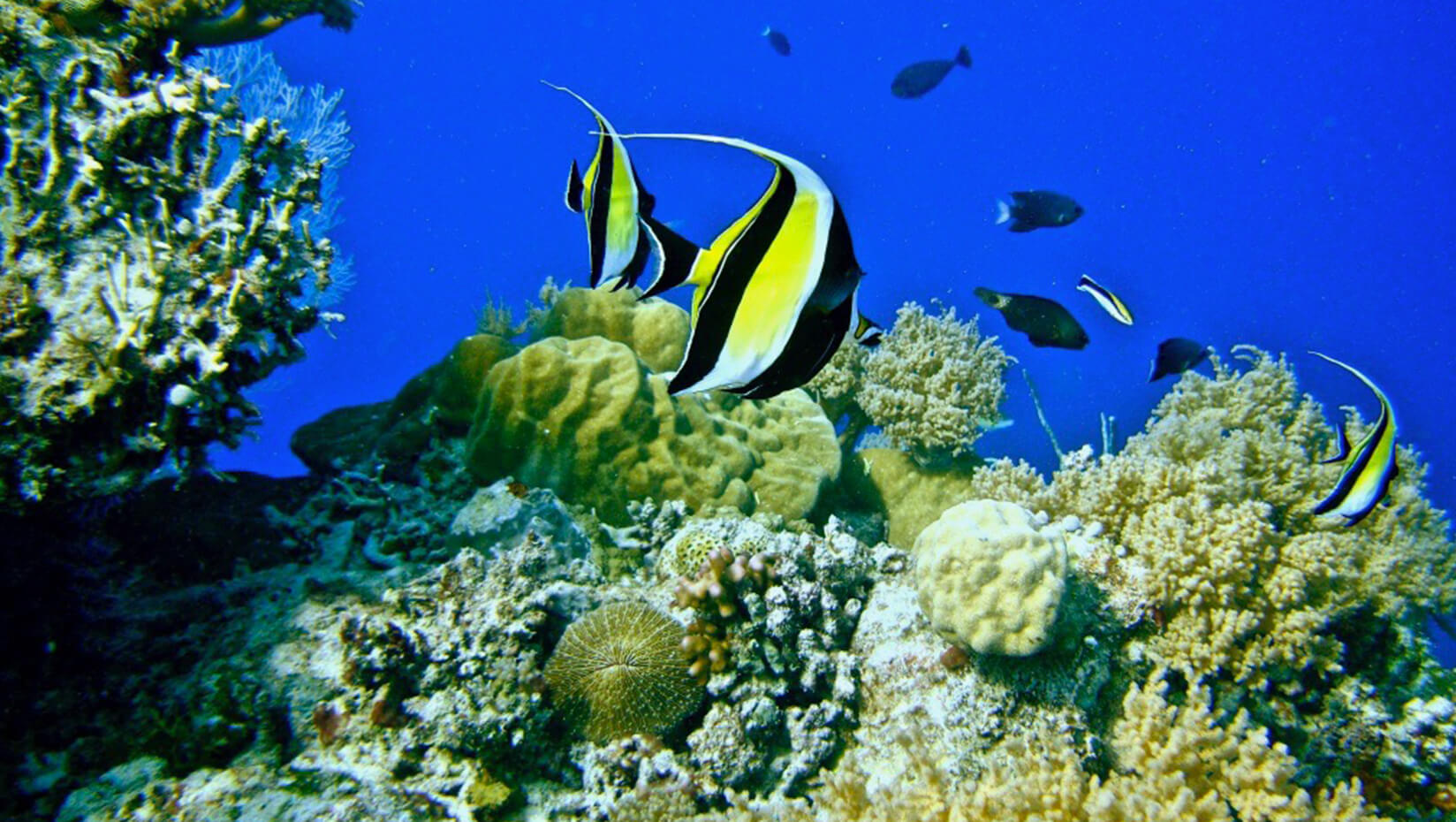
Steneck discusses risks to coral reefs at Ocean Solutions Initiative in Monaco
Bob Steneck, professor of marine sciences based at the University of Maine Darling Marine Center, recently attended the Ocean Solution Initiative convened by Monaco’s Prince Albert II.
The initiative brought together coral reef experts from seven countries — Monaco, France, Japan, Australia, Saudi Arabia, Israel and the United States — to discuss global and local measures to reduce risks and climate change effects on coral reefs.
Coral reefs are arguably the world’s most endangered marine ecosystems due to decades of pollution and coastal development. And since the late 1980s, Steneck says they have also been stressed by ocean warming and, to a lesser extent, ocean acidification.
“The splendor of coral reefs attracts lots of people, so the stresses created by our changing climate are seen by more people than just about any other ecosystem,” Steneck says. “In a way, coral reefs are the canaries on our ‘mineshaft’ Earth. They are struggling today.”
Extreme warming events that have led to recurrent large-scale coral bleaching and mass-mortality events are projected to become increasingly frequent.
“The climate-driven coral bleaching of the Great Barrier Reef should be a wake-up call for all of us,” Steneck says. “We need to find ways of curbing emissions if we are to preserve these beautiful ecosystems for future generations.”
Complementary strategies were part of the Ocean Solution Initiative and discussion revolved around whether meaningful actions can be accomplished, and soon enough.
“I’m more of a ‘Yes, we can’ kind of guy,” Steneck says.
